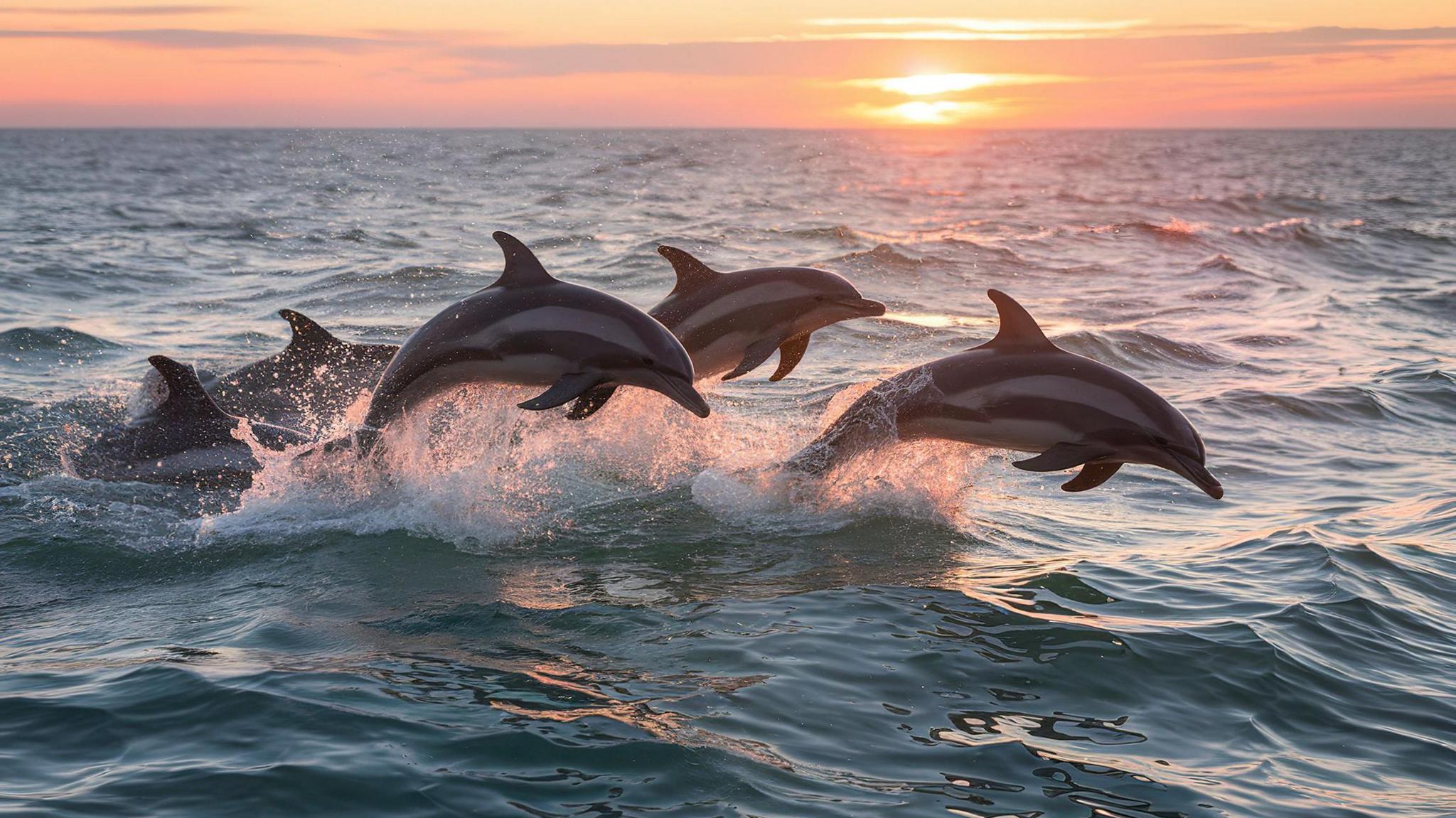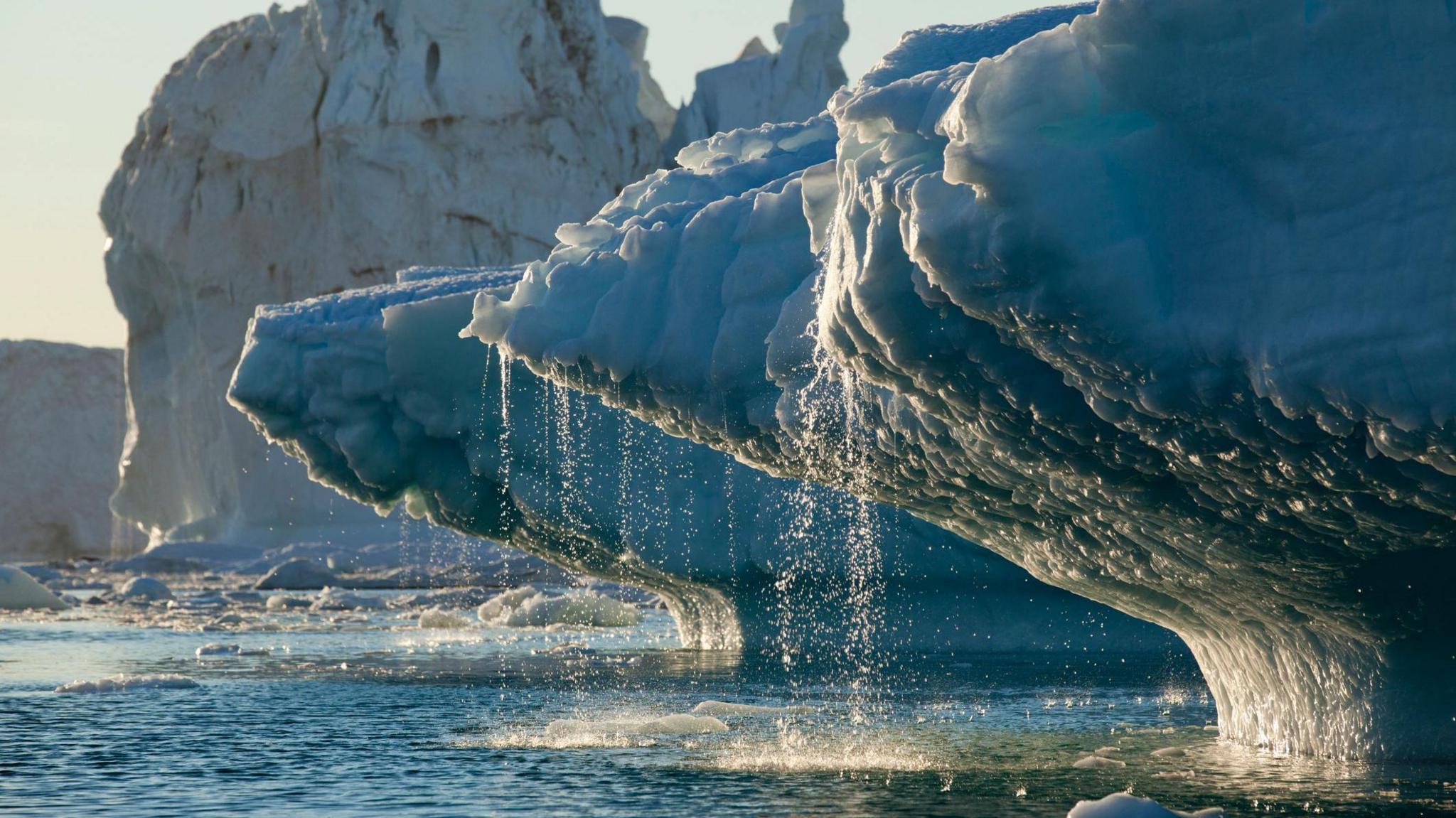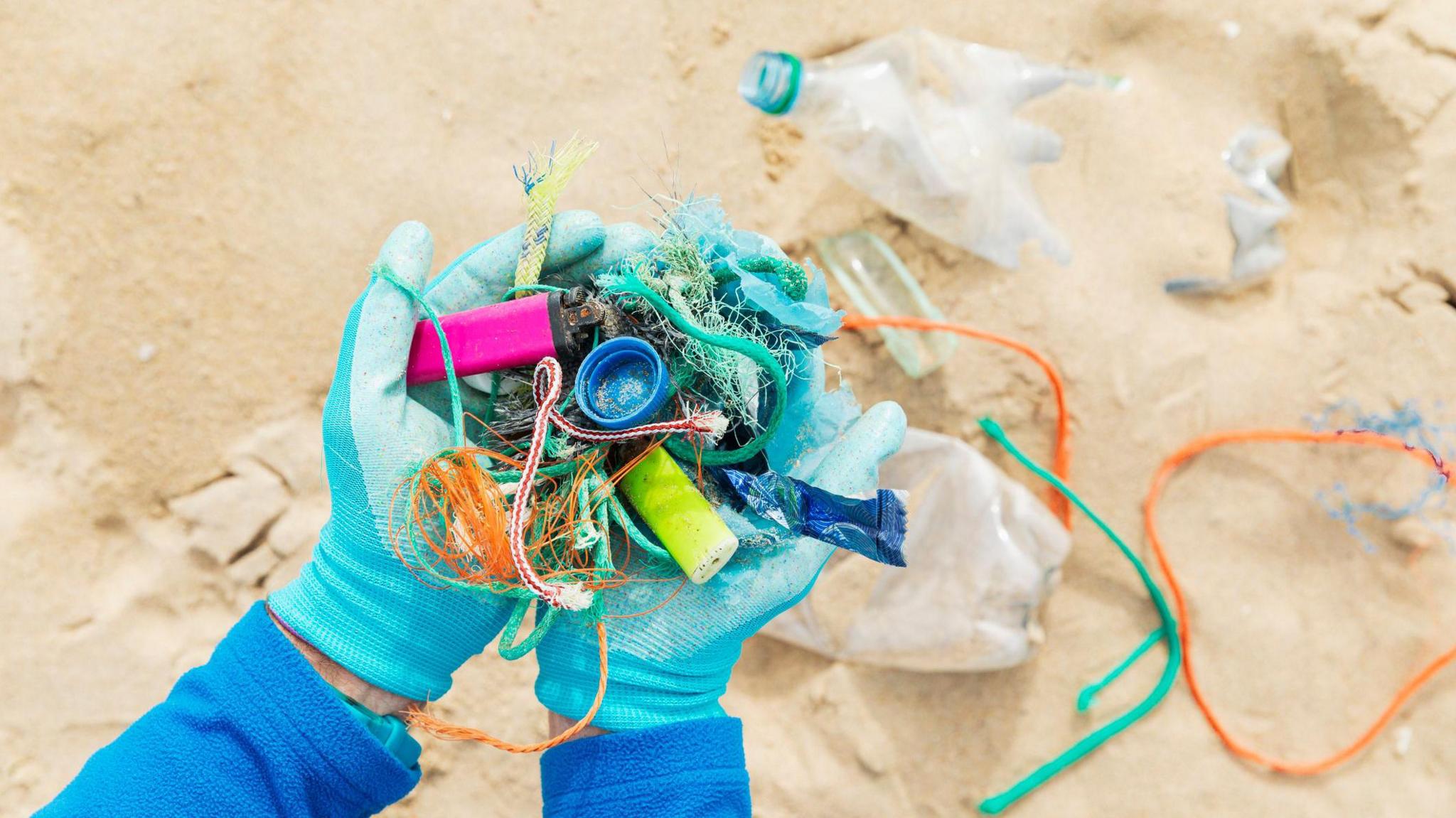World Oceans Day 2025: What's it all about?
What problems are our oceans facing?
- Published
Sunday 8 June is World Oceans Day. A time to celebrate and raise awareness of issues affecting the world's oceans.
The theme for World Oceans Day 2025 is "Wonder: Sustaining what sustains us", which event organisers say aims to celebrate the wonder and awe that the ocean inspires in us, and the important role that wonder plays in encouraging curiosity, scientific knowledge, exploration, and innovation.
A big event will be hosted in Nice, in France, on 8 June, ahead of the 2025 UN Ocean Conference which takes place between 9 – 13 June, 2025.
Here is everything you need to know about World Oceans Day and the most important issues facing oceans around the globe today.
Hope for ocean recovery by 2050
- Published2 April 2020
Oceans reach hottest ever recorded temperature
- Published4 August 2023
Quiz: How well do you know our oceans?
- Published8 June 2022
What is World Oceans Day?

On 8 June every year since 1992, the United Nations (UN) has designated a special day marking the importance of the world's oceans.
They call it World Oceans Day.
Events marking it take place across the world and more than 100 countries take part in the celebrations.
In 2020, the event called for world leaders to commit to protecting 30% of our oceans by 2030 - in the hope that if that happens it will help combat climate change and protect marine biodiversity.
"Without the ocean we wouldn't be here"
Each year a different theme is adopted.
Last year, the theme was Awaken New Depths, focusing on changing our relationship with the seas to ensure the ocean's health and wellbeing.
The UN holds a live event with special guests discussing topics from the seas to space.
Sometimes special guests, like actor Jason Momoa who plays Aquaman, are invited to talk too.
Why are oceans under threat?
According to research released in 2023, oceans across the world have reached record high temperatures, and 2024 was the warmest year on record.
Seas are now warmer than at any other time in recorded human history and the increase in temperature has been directly linked to global warming.
Scientists believe that human activities - such as the burning of fossil fuels and emissions from factories - are having a bad effect on global temperatures, causing harmful gases to be released into the atmosphere.

Oceans have reached record high temperatures which has caused many of the world's ice caps to melt
Those gases end up in the Earth's atmosphere and trap more of the Sun's heat, which then increases the Earth's temperatures.
Rising sea temperatures have a huge effect on sea life and many animals and plants are struggling to adapt.
Underwater Photographer of the Year 2025: Take a look at these amazing pictures!
- Published21 February
Sailors find microplastics even in remote oceans
- Published7 June 2023
Plastic pollution: How much plastic is in our oceans?

There is also the big issue of plastic waste in oceans.
In 2019, the World Wide Fund for Nature - which is the world's largest wildlife and conversation charity - said plastic pollution was causing an environmental disaster.
More than 75% of all plastic ever produced is already waste.
Plastic pollution kills wildlife, damages natural ecosystems, and contributes to climate change.
Guide: Why is plastic a problem?
The problem with plastic is that most of it is not biodegradable.
That means it doesn't rot, like paper or food, so instead it can hang around in the environment and take hundreds of years to break down.
More than eight million tonnes of plastic enters the world's oceans each year and most of that escapes from land.
Around 171 trillion pieces of plastic are now thought to be floating in the world's oceans, according to scientists.
Ideas for how to celebrate World Oceans Day

Although World Oceans Day is an important day to learn more about the crisis state our oceans are in, it is also a day to celebrate oceans that take up 70% of our planet.
Here are some things you can do on the day:
You could make some marine themed art. If you fancy making a fish decoration to keep after World Oceans Day is over, check out how to make your very own moving fish.
As we know how much plastic ends up in our oceans, why not try to avoid using single-use plastics like carrier bags, straws and bottles and switch to reusable and refillable ones instead? Here are some more useful tips on how to cut down on the plastic in your life.
Why not try eating vegetarian food for a day? There are lots of delicious recipes that don't contain fish or seafood. You could even try this vegan recipe generator to come up with an idea for your next meal.
If you're lucky enough to live by a beach, why not take part in a beach clean-up event? This way you can do your bit by collecting rubbish that could make its way into the sea.
And finally, you can learn as much as you can about our oceans and how to protect them.
